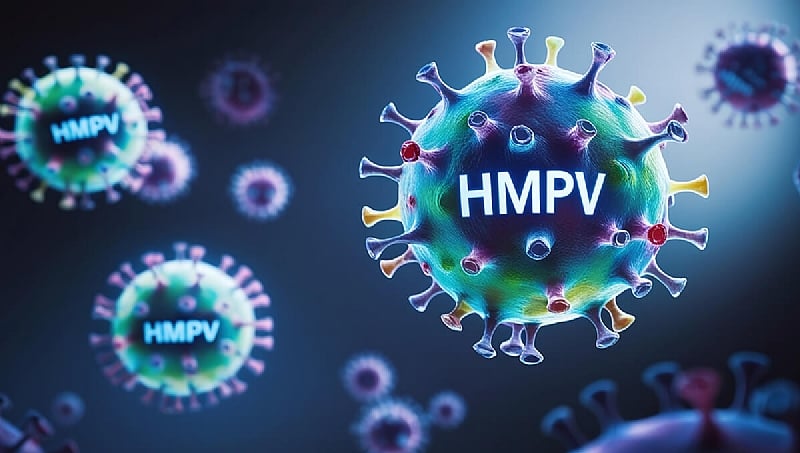The Ghana Health Service (GHS), in partnership with various stakeholders, has affirmed its preparedness to effectively detect and manage any potential surge in Human Metapneumovirus (hMPV) cases within the country. This proactive stance comes in response to reports of hMPV outbreaks across the Northern Hemisphere, particularly in China, which have been contributing to a rise in acute respiratory infections since late December 2024. It is crucial to understand that hMPV is not a novel virus like COVID-19, and the observed increase in acute respiratory infections aligns with typical seasonal patterns, with cases often escalating during the winter months in these regions.
The World Health Organization (WHO), following a comprehensive risk assessment conducted on January 7, 2025, corroborated the expected nature of the surge in acute respiratory infections and associated pathogen detections within several Northern Hemisphere countries during this time of year. The WHO’s assessment emphasized that the current situation is not unusual and aligns with historical trends. In response to these global developments, Ghana has proactively convened a Public Health Emergency Operation Centre meeting to meticulously evaluate the situation, incorporating updates from the National Influenza Centre (NIC). This proactive approach underscores Ghana’s commitment to vigilance and preparedness in the face of potential health threats.
Ghana’s robust surveillance system, comprising respiratory surveillance sites strategically located across all 16 regions, continuously monitors for unusual respiratory pathogens. To date, the weekly samples collected and analyzed have not revealed any unusual activity, including the hMPV. This comprehensive surveillance mechanism allows for the early detection of potential threats and enables a timely and effective response. The GHS, in line with WHO recommendations, has adopted a multi-faceted approach to address the potential risk of hMPV. This includes enhanced surveillance at all levels for acute respiratory diseases, expanding laboratory testing capabilities nationwide, closely monitoring the evolving situation in the Northern Hemisphere, and conducting public awareness campaigns.
The GHS’ commitment to enhanced surveillance encompasses strengthening the existing network of respiratory surveillance sites and increasing the frequency of sample collection and analysis. This intensified monitoring allows for a more granular understanding of circulating respiratory pathogens and the early identification of any deviations from expected patterns. Expanding laboratory testing capabilities is another critical component of Ghana’s response strategy. This involves increasing the capacity of laboratories to process and analyze respiratory samples, ensuring timely and accurate diagnosis of potential hMPV cases. By bolstering these capabilities, Ghana strengthens its ability to effectively track and respond to any potential surge in hMPV.
Regular assessment of the situation in the Northern Hemisphere provides crucial insights into the evolving dynamics of hMPV transmission. By closely monitoring the trends and patterns observed in other regions, Ghana can anticipate potential challenges and proactively adapt its response strategies. This global perspective informs national preparedness efforts and enables the GHS to make evidence-based decisions to safeguard public health. Public sensitization plays a crucial role in empowering individuals to protect themselves and others from respiratory infections. The GHS is committed to disseminating timely and accurate information about hMPV, including its symptoms, transmission routes, and preventive measures. This proactive communication strategy aims to enhance public awareness and promote responsible health behaviors.
The GHS, through its comprehensive and proactive approach, aims to reassure the public of its unwavering commitment to protecting the health and well-being of all Ghanaians. The service’s ongoing efforts focus on strengthening surveillance, expanding testing capabilities, closely monitoring global trends, and educating the public. By diligently implementing these measures, the GHS strives to minimize the potential impact of hMPV and safeguard the nation’s health security. The GHS has pledged to provide regular updates on the situation, ensuring transparency and keeping the public informed of any developments related to hMPV. This open communication fosters trust and empowers individuals to make informed decisions about their health.


